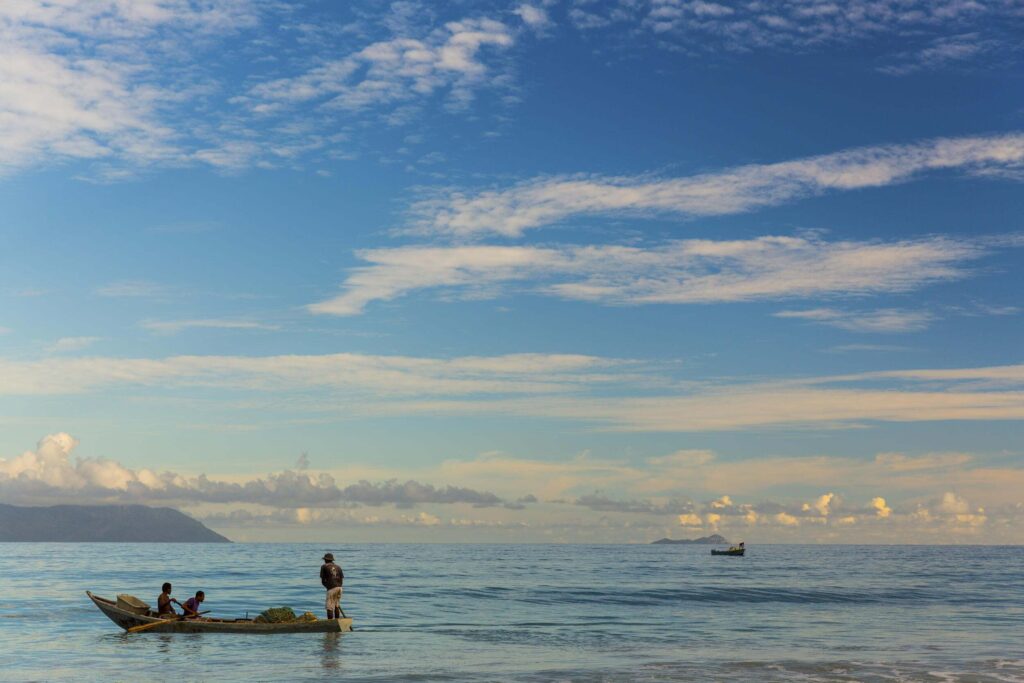Social and Governance Resilience Indicators
When assessing socio-economic resilience, researchers typically focus on measuring social vulnerability, which is a measure of a community's ability to withstand shocks and stresses to livelihood and wellbeing, and is measured using three components: ref
- Exposure
- Sensitivity
- Adaptive capacity
Exposure and sensitivity determine the potential impact that a system could experience. Adaptive capacity is the community’s ability to moderate potential impacts. All these factors determine total vulnerability.

Mackrel fishermen in the Seychelles. Photo © Jason Houston
Measuring Socio-economic Vulnerability
Indicators of socio-economic resilience vary depending on the context (i.e., reef resource the community depends upon) and the availability of information (i.e., who is available to answer the survey). For example, Thiault et al. 2021 recommend indicators that fit within specific domains (explanation category) for each of the 3 core components of social vulnerability: exposure, sensitivity and adaptive capacity. Examples include:
Exposure:
- Drought frequency
- Storm frequency
- Extreme marine heat events
Sensitivity:
- Proportion of income from activity
- Nutritional dependency
- Identity and pride
Adaptive Capacity:
- Gear diversity
- Access to information
- Community infrastructure
Measuring the Resilience of Governance Systems
The resilience of a governance structure is linked to all legal, social, economic, and political arrangements in place to manage a reef resource. ref Just like socio-economic resilience, indicators of governance resilience are context and resource specific.
For example, a recent review by Mason et al. 2021 presents indicators of governance resilience for fisheries in the context of climate change organized in four broad domains:
- Flexibility – the capacity to adjust to social and or ecological changes
- Organization – the structure of the management process
- Learning – the capacity to incorporate new knowledge and be adaptive
- Agency – the capacity of leadership to work towards collective interest
For more in-depth information on indicators and key considerations for measuring the resilience of socio-economic and governance systems of coral reef associated communities take the Introduction to Coral Reef Management Online Course Lesson 4: Assessing and Monitoring Reefs.
